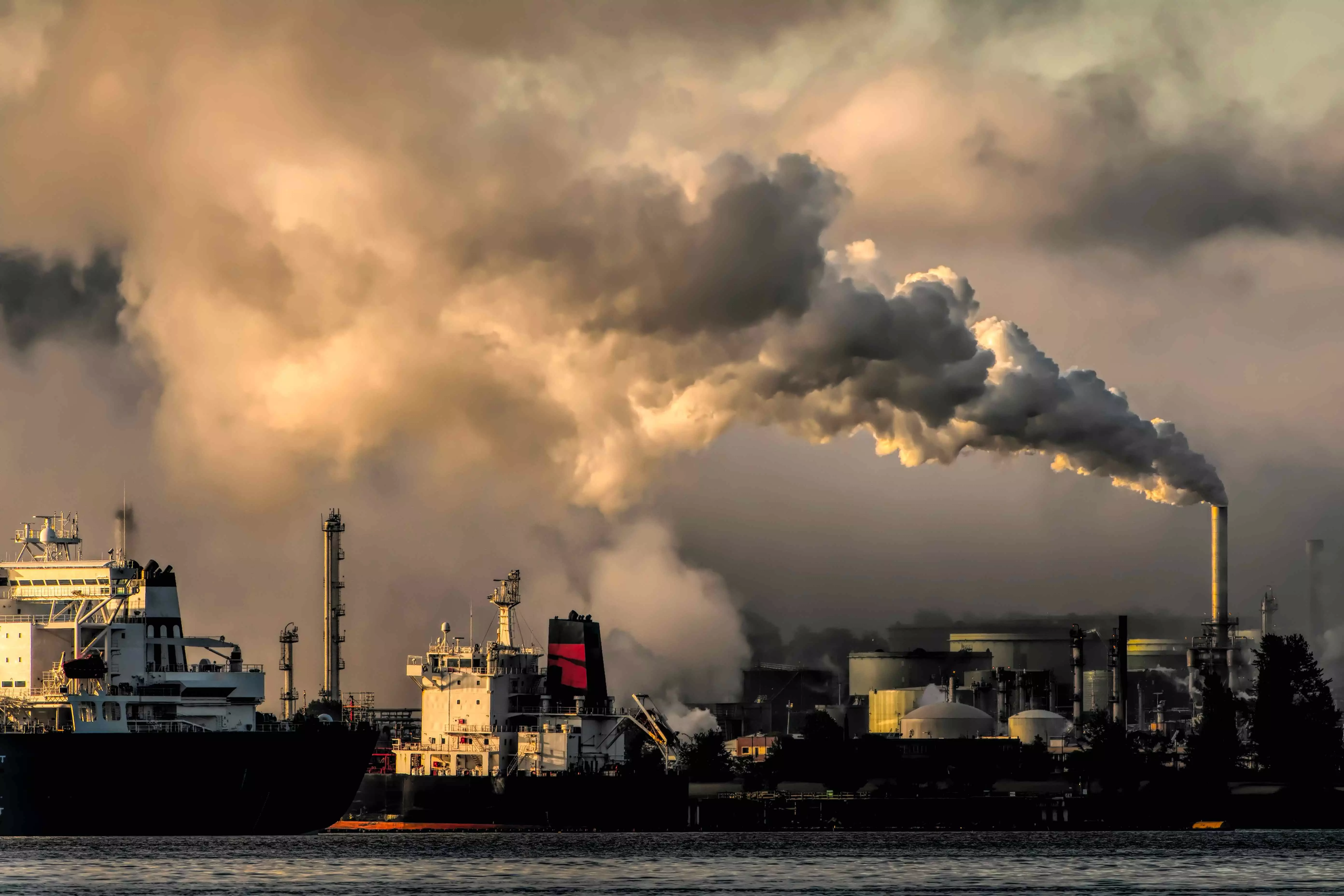Breathing toxicity!

In a sobering revelation, the recently released annual Air Quality Life Index (AQLI) report by the University of Chicago's Energy Policy Institute has brought to light the dire consequences of air pollution on human life in South Asia and the world at large. The report's figures are both shocking and alarming. According to the AQLI, the residents of South Asia are facing a staggering reduction of 5.1 years in life expectancy due to the hazardous levels of air pollution. In India alone, a country grappling with severe air quality issues, the toll is even graver at 5.3 years. These statistics underscore the urgency of addressing the issue head-on. The AQLI report, although yet to undergo peer review, underscores an undeniable truth — particulate pollution, particularly PM2.5, remains the foremost external threat to human health worldwide. These tiny particles, measuring just 2.5 micrometres, can easily infiltrate our circulatory system through the nose and throat, triggering a myriad of health problems, from simple respiratory diseases to life-threatening conditions like asthma, heart attacks, and bronchitis. The report reveals that if the world were to consistently reduce fine particulate pollution (PM2.5) to align with the World Health Organisation's (WHO) guideline, the average human life expectancy could increase by an impressive 2.3 years. The WHO, in its wisdom, prescribes that PM2.5 concentrations should not exceed 5 µg/m³. Shockingly, this leaves 1.3 billion people of India living in perilously polluted environments. India bears the brunt of this crisis, emerging as the second-most polluted country, trailing only behind Bangladesh. While industrialisation and urbanisation play pivotal roles in exacerbating air pollution, it is the collective negligence that poses an even graver challenge. A glaring lack of sustainable urban planning, coupled with inadequate air quality data and standards, serves as a harbinger of disaster. One of the most concerning revelations of the report is the minimal focus on disseminating accurate air quality data by governments. With just 6.8 per cent and 3.7 per cent of Asian and African governments providing their citizens with open air quality data, respectively, it is evident that information is a rare commodity. Equally alarming is the dearth of air quality standards, with only 35.6 per cent and 4.9 per cent of Asian and African countries having established such benchmarks. This lack of transparency and uniformity perpetuates the crisis. Undoubtedly, financial constraints and budgetary constraints are contributing to the apathy surrounding air pollution mitigation efforts. However, the price we pay in terms of human lives and suffering is far greater than any financial burden. It is imperative that governments and institutions prioritise funding and resource allocation to combat air pollution effectively. While South Asia is disproportionately affected, the scourge of air pollution transcends geographical boundaries. It is a global menace necessitating a united front. Collaborative efforts that encompass governments, organisations, and citizens are essential to achieve clean air and a better quality of life. The inextricable link between air quality, safety, and human well-being cannot be ignored. Governments must lead by example by placing the issue at the forefront of their agendas. Education, awareness, and stringent policies are the stepping stones to a cleaner future. The AQLI report's assertion that open air quality data can be the linchpin for clean air initiatives is especially pertinent. Transparent and reliable data not only empower citizens to make informed decisions but also compel governments to take decisive action. It is through knowledge that we can usher in the change we so desperately need. To sum up, the findings of the AQLI report are not merely statistics but a wake-up call to the pressing crisis of air pollution. The scale of the challenge demands immediate and collective action. Governments must commit to policy changes, industries must embrace cleaner practices, and citizens must demand accountability. Our air should not be a harbinger of disease; it should be a source of life and vitality. The AQLI report should serve as a catalyst for change and foster our determination to breathe clean air, for a healthier and brighter future.



